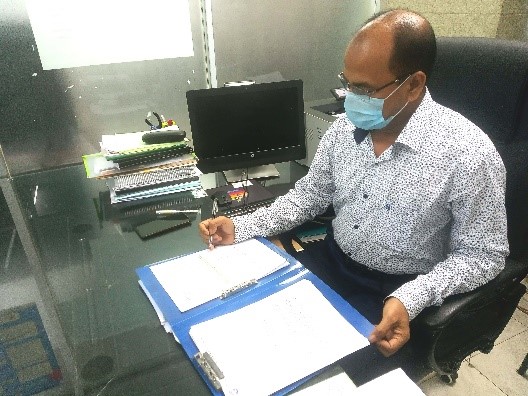Strengthening Public Procurement Capacity for Better Health Services Delivery in Bangladesh
A major component of the supply chain to ensure the availability of quality medical goods is the acquisition of assets and health commodities through public procurement. USAID MTaPS Program in Bangladesh facilitated a virtual orientation on public procurement for approximately 60 senior officials and medical officers from the Planning, Monitoring, and Research Division of the Directorate General of Health Services (DGHS). The seven-day session, held in July 2021, focused on the process and management of tender preparation, evaluation, closing, and monitoring of tenders and biddings to strengthen the public procurement-related capacity of the health officials responsible for procurement proceedings.
Delivering health services depends on public procurement of health commodities—from general medicines to hospital equipment—on both small and large scales. The DGHS has many staff with a medical background whose academic curriculum and training did not thoroughly cover the technical details of public procurements. This shortfall is of concern for senior members at the DGHS as various public procurements have arisen in recent times.
The DGHS has more than 60 procurement entities under its umbrella. Prior to the COVID-19 pandemic, all tenders for the DGHS were managed and conducted by the Central Medical Stores Depot. However, during the pandemic, a significant number of procurements have been redistributed among different sections of the DGHS. Formal training in this area was difficult to facilitate during the COVID-19 lockdown, so the DGHS sought assistance from the MTaPS program.

Deputy Director of the DGHS Dr. Md. Shamsur Rahman is more confident in reviewing procurement processes after the MTaPS training.
“I have to review the procurement process, including planning, evaluation, and contract management, of almost 60 procurement entities. MTaPS’ training helped me to know different steps of the procurement process. Now I am more organized and confident about doing this job properly.” – DGHS Deputy Director Dr. Md. Shamsur Rahman
Dr. Rahman reported that procurement processes involving other staff who were not able to participate in the training are also seeing improvements. These staff are informed and guided by trained staff and perform better.
Training participant Dr. Shomrita Barua, who works as a medical officer in the Planning, Monitoring, and Research Division of the DGHS, said, “Now I know better about procurement planning and how it works in different organizations. I can work in a more organized way to initiate tender openings. I am more confident about the procurement process.”
Both participants mentioned that while the online training was helpful as an orientation, many essential interactions of physical training sessions were absent. The participants hoped to receive such training in the future to help them further strengthen their procurement knowledge and skills.